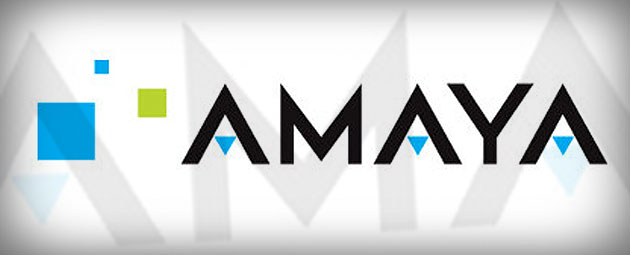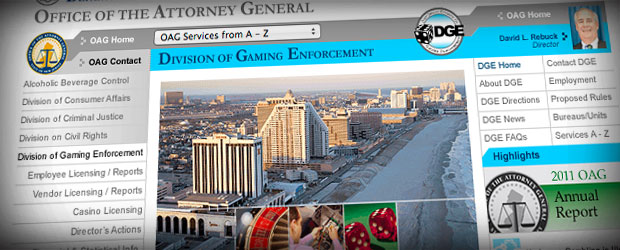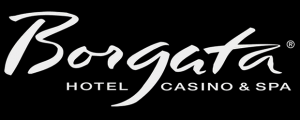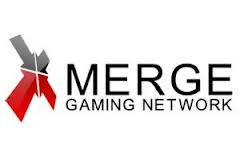 The rumors proved true. Amaya Gaming and PokerStars announced the deal via a press release late in the evening of June 12.
The rumors proved true. Amaya Gaming and PokerStars announced the deal via a press release late in the evening of June 12.
Amaya will acquire Oldford Group, parent company of Rational Group, which owns and operates PokerStars and Full Tilt Poker. The agreement is worth $4.9 billion.
The deal includes all issued and outstanding shares of Oldford, and all of the assets associated with the company. PokerStars and Full Tilt Poker alone have more than 85 million registered players on the online poker sites, with PokerStars by-and-large the biggest Internet poker entity in the world.
Figures included in the press release show that the pro forma combined revenue for Amaya and Oldford in 2013 was $1.3 billion, and the EBITDA was $474.8 million. Adjusted EBITDA, before interest, financing costs, taxes, and other costs, was $473.8 million, and that estimated adjusted EBITDA for 2014 (back-dating to January 1, 2014 for the buyout) is $600 million to $640 million.
Some estimated the worth of PokerStars to be more alone than the $4.9 billion sale price of Oldford, but the exclusion from the United States market dented that worth and may have reduced the price to one that worked for both parties.
Amaya didn’t have $5 billion cash on hand for the transaction, but a $50 million deposit started the deal. The Blackstone Group will assist in financing some of the debt, as has an unnamed investment manager. A combination of cash, new debt, subscription receipts, common shares, and preferred shares will be used to complete the sale.
Business as Usual, Mostly
Despite the size and scope of the deal, not to mention its possible impact on the global and United States gaming markets, business at PokerStars, Full Tilt Poker, and Amaya Gaming is said to be moving forward as usual. Players on the gaming sites will not see any change in their day-to-day activities.
PokerStars and Full Tilt Poker will continue to offer the same games to the same markets, for the time being.
Tours like the European Poker Tour, Latin American Poker Tour, and UK & Ireland Poker Tour (just to name a few) will operate with PokerStars as their sponsor without any changes to their respective live event schedules.
The Rational Group will continue working from its Isle of Man offices, as well as current sub-offices, and Amaya will stay in its Montreal headquarters.
Amaya and PokerStars Management Shuffle
There are a few people involved in Rational Group that will see a change. In fact, that change is an integral part of the agreement and one that will likely give Amaya a better chance to offer online gaming services to more states in America.
Oldford Group founder and Chief Executive Officer Mark Scheinberg will sell all of his company shares to a subsidiary of Amaya, as will other Oldford shareholders. Scheinberg and several other executives will resign from their positions and leave the company altogether.
The exit of Mark and Isai Scheinberg is a key component for PokerStars to gain entry into New Jersey. Though Amaya has a fully executed and valid license, its new agreement with PokerStars will need to be reexamined.
Since PokerStars’ license application was on hold due to the pending US Department of Justice indictment against Isai Scheinberg, this move may signal a new chapter for Amaya, PokerStars, and New Jersey Internet gaming.
Speaking of Regulated Markets
The press release specifically addressed the entry of PokerStars and Full Tilt to regulated markets and named the United States as the most pertinent.
“Amaya believes the transaction will expedite the entry of PokerStars and Full Tilt Poker into regulated markets in which Amaya already holds a footprint.”
Quite a few states have bad actor clauses in place or prepared for upcoming legislative opportunities, but many in the online gaming industry hope that the Amaya deal will shine a new light on “bad actors.”
The Poker Players Alliance was quick to praise the buyout with respect to the positive effect it may have on PokerStars and the regulated US market. “Amaya’s acquisition should remove any perceived impediment for this popular brand to once again be available to players in regulated US jurisdictions,” said PPA Executive Director John Pappas.
He went further to explain his hope that the news “will bring the gaming industry together – tribes, commercial casinos, card rooms, lotteries, and others – to push as a united front for state and federal legislation that licenses and regulated Internet poker.”

 The online gaming affiliate industry was a thriving market in the United States before the UIGEA and Black Friday, and it has yet to gain much ground at all since the regulation of online gaming in New Jersey.
The online gaming affiliate industry was a thriving market in the United States before the UIGEA and Black Friday, and it has yet to gain much ground at all since the regulation of online gaming in New Jersey.

